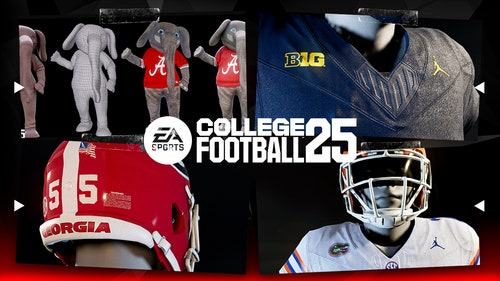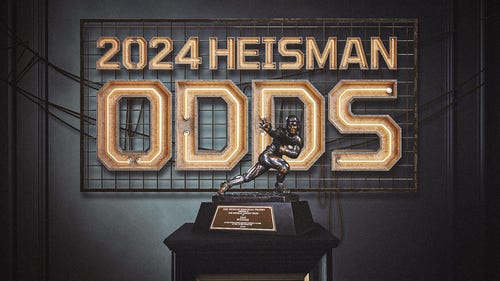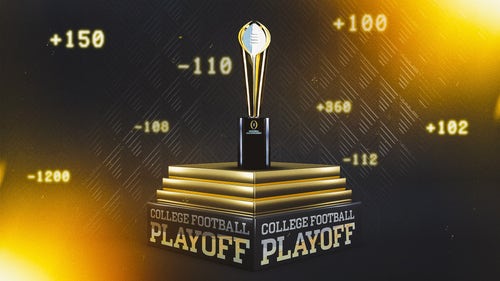
Why Charlie Strong was set up to fail at Texas

Texas coach Charlie Strong is on the hot seat heading into the Red River Shootout, again.
Yes, for the second-straight year, Strong will head into Texas’ biggest rivalry game knowing that the outcome of the contest will likely decide if he’ll retain his job at the end of the year.
Strong is only in his third season in Austin — Saturday will be his 30th game in charge of the Longhorns. Apparently, that's enough time to decide it's not working and will never work.
Then again, it's becoming more obvious as the end encroaches that Strong was set up to fail at Texas.
The Strong-Longhorn marriage was always a peculiar one. There’s no one in the American sporting public who believes that Strong was Texas’ first choice — Longhorn power brokers didn’t even bother to hide the fact that they, like every other booster base in the nation, wanted to get Nick Saban to coach their team.
The story is that Saban turned down a 10-year deal worth $100 million to take over the Longhorns program in 2014. That’s one impressive offer and if that couldn’t pull him from Alabama, nothing will.
So Texas turned to Strong, the up-and-coming head coach at Louisville who had worked under Urban Meyer as his defensive coordinator at Florida.
Those are impressive credentials and Strong’s success at Louisville was unimpeachable. No one could argue that he wasn’t a suitable choice for a premier job, like Texas.
But he was a strange choice for Texas. Not because of the pedigree or track record, no, because of his methodology.
Strong was a Florida guy. He spent 10 years as a coach at the University of Florida and when the school made the grave mistake of passing on him as Meyer's successor, he went to Louisville and built that program into a Sugar Bowl champion with Florida kids.
Strong’s 2011 recruiting class was the one that put Strong in line for the Texas job, and 12 of 22 members were Florida kids. Strong recruited South Florida, and particularly Miami, hard. The Miami crop in that 2011 class included quarterback Teddy Bridgewater, receiver Eli Rodgers, and defensive end B.J. Dubose.
Strong lived on Florida talent for most of his career. He had relationships with high school coaches and handlers all over the state and knew how to get high-potential players that other schools might have missed. Strong was a legend in South Florida, particularly, and with the University of Miami’s poor play, Louisville was the favorite college team of many in the black communities in Miami-Dade and Broward Counties. Strong had a pipeline.
Texas can recruit nationally, but everyone knows that Texas recruits in-state first, second and third. In retrospect, it was pretty ridiculous to think that a coach whose career was built by recruiting one state (and, more specifically, one region) well was going to transfer his recruiting success to a new school that required him to recruit an entirely new environment.
Strong was expected to be the next-best choice to Saban, but he only got one season to build a similar recruiting pipeline — a sustainable foundation — in that brand new environment before he needed to start bringing in significant results. Texas needed a plug-and-play coach who could win immediately, and Strong, a Texas outsider, was never going to be that guy.
We'll probably never find out if his long-term vision would have worked, either.
Another reason Strong was a strange choice for Texas was his defensive background. Three years have proven it, but even in 2014, a defense-first coach that wanted to play power football seemed incongruent with the Air Raid-happy Big 12.
It took only a few games to realize that Texas’ old-school systems were going to have problems succeeding in the Big 12. After the first year, when Strong failed to adapt, the writing was on the wall. The hiring of young Air Raid guru Sterlin Gilbert as offensive coordinator this past offseason was probably too little too late for the Longhorns, who don’t have the personnel to run that system in its ideal form and whose defense, particularly in the defensive backfield, has regressed against a league full of high-flying offenses.
Charlie Strong and Texas were always a strange match, and Saturday might initiate the break we should have seen coming from Day 1.









